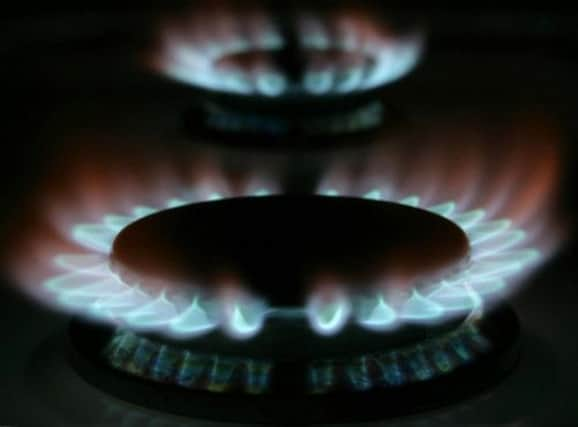UK was six hours from running out of gas in March


The revelation led to fears about the UK’s reliance on imported energy and raised questions about the UK government’s handling of the fuel shortage triggered by freezing weather and pipeline failures.
At the time, David Cameron’s spokesman said the Prime Minister was “absolutely confident” that supplies would continue.
Advertisement
Hide AdAdvertisement
Hide AdBut yesterday the Crown Estate’s energy and infrastructure director, Rob Hastings, said: “We really only had six hours’ worth of gas left in storage as a buffer.
“If it had run any lower, it would have meant interruptions to supply.”
He added: “The bottom line is that in the UK we are in a place where the gas supply is dangerously low.”
The Crown Estate, the property portfolio managed for the Queen, owns the rights to gas storage sites under the UK seabed, including Rough, the UK’s largest gas storage facility. Rough, off the East Yorkshire coast, is leased by Centrica, owner of British Gas.
Mr Hasting’s low estimate of the amount of gas left during the March fuel crisis appeared to be at odds with the reassuring comments that came from No10 during the fuel shortage.
On March 23, Mr Cameron’s spokesman was reported as saying that supplies were not running out, adding that the gas market was functioning well.
When asked if the Prime Minister remained confident that the gas supplies would not run out, the spokesman replied:
“Absolutely confident”.
Last night, opposition parties criticised the government’s energy policy.
Advertisement
Hide AdAdvertisement
Hide AdTom Greatrex, Scottish Labour’s shadow energy minister, and MP for Rutherglen and Hamilton West, said: “It is irresponsible of the UK government to be anything other than open and transparent about gas shortages given the consequences it could have for ordinary families and their energy bills.
“That the UK came so close to running out of gas towards the end of the winter is a timely reminder of the need for a balanced energy mix with a greater degree of resilience than we have at present.”
An SNP spokeswoman said: “It is further evidence of Westminster’s mismanagement of oil and gas resources stretching back many decades, and its failure to plan properly.”
The supply squeeze was caused by a number of issues:
n A processing plant in Norway that supplies gas to Britain through the Langeled pipeline encountered problems.
n Gas storage levels were already low after an exceptionally harsh winter, followed by a late cold snap, forcing people to keep their heating on.
n An undersea pipeline connecting Britain and Belgium was shut down after a water pump failed, pushing the price of gas up by 50 per cent.
n Finally, ships which had to bring supplies of liquefied natural gas from Qatar were delayed by the bad weather.
Yesterday, the National Grid admitted that natural gas supplies were low, but said that was normal for the time of year. Executive director Nick Winser added: “The UK has low storage levels by international standards, but there is a large diversity of [supply] sources.
“Our gas supply resilience is substantial.”
Advertisement
Hide AdAdvertisement
Hide AdDermot Grimson, head of strategy and policy at the Crown Estate, said yesterday: “As widely reported in March, gas reserves were low. However, wind energy generation was high during the period, demonstrating that the government’s strategy to diversify the UK’s energy supply to provide secure low-carbon and affordable energy is paying off.”
According to the Crown Estate, renewables contributed 12.5 per cent to the UK’s electricity supply between October to December 2012, a figure it believes will increase as the power of wind and waves is harnessed.
The UK is relying more on buying in energy than ever before, with official figures showing that total energy imports reached a record high of 173.7 million tonnes of oil equivalent in 2012.
The UK’s net import dependency rose to 43 per cent, its highest level since 1976, the Department for Energy and Climate Change (DECC) added.
Gas was used to generate 27.5 per cent of the UK’s electricity in 2012, compared with almost
40 per cent from coal.
Last night, a DECC spokesman said: “We did have unusually cold weather this year which led to an increase in demand and reduced the levels of gas held in storage. However, despite this, the UK gas market continued to function well.”
SEE ALSO:
• http://www.scotsman.com/news/environment/nine-foot-poles-for-gas-pipelines-criticised-1-2944421|Nine-foot poles for gas pipelines criticised|Article}